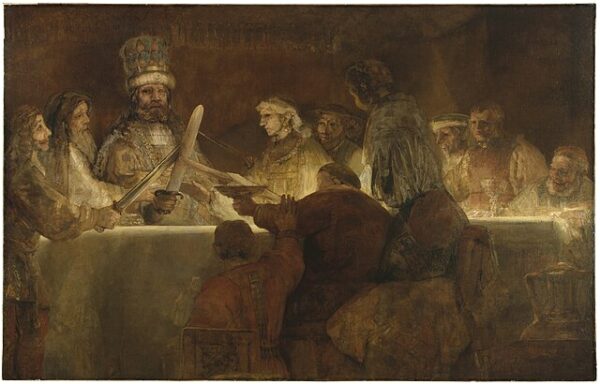On October 13, 54 AD, the Roman Emperor Claudius died under mysterious circumstances, widely believed to be the result of poisoning. Claudius, who had come to power unexpectedly following the assassination of his nephew, Emperor Caligula, ruled the Roman Empire for 13 years. Despite his initial reputation as a bumbling, reluctant ruler, Claudius proved to be a capable and ambitious leader. His reign saw significant territorial expansion, including the conquest of Britain, as well as legal reforms and major public works projects. However, his death brought to light the political intrigue that defined much of his life and reign.
The circumstances of Claudius’ death remain a subject of debate among historians. Ancient sources, such as the Roman historian Tacitus and the biographer Suetonius, suggest that Claudius was poisoned by his fourth wife, Agrippina the Younger. Agrippina, a member of the powerful Julio-Claudian dynasty, had strong political ambitions, particularly regarding her son from a previous marriage, Nero. By the time of Claudius’ death, Nero had been adopted by the emperor and was positioned as his heir, ahead of Claudius’ own biological son, Britannicus. Claudius’ sudden death at the age of 64 raised suspicions of foul play, particularly given the fact that Nero succeeded him almost immediately.
The story of Claudius’ poisoning is shrouded in uncertainty, but ancient accounts describe a carefully orchestrated plot. According to Tacitus, Agrippina enlisted the help of Claudius’ physician, Xenophon, and a notorious poisoner named Locusta. The poison was allegedly administered in a dish of mushrooms, one of Claudius’ favorite foods. Suetonius offers a similar version of events, suggesting that the emperor may have initially survived the poisoning attempt, only to be given a lethal dose later by Xenophon, under Agrippina’s orders. Regardless of the exact details, Claudius’ death was followed by little mourning at the imperial court. Nero, who was only 16 years old at the time, ascended to the throne without delay.
Nero’s rise to power, however, was not without controversy. Claudius had a legitimate heir, Britannicus, his son with his third wife, Valeria Messalina. Messalina had been executed several years earlier after being implicated in a conspiracy against Claudius, and Britannicus, who was still a minor at the time of his father’s death, had been largely sidelined from the line of succession. Although Britannicus was Claudius’ biological son and might have been a more obvious choice as successor, Agrippina’s machinations ensured that Nero, her son, would claim the throne.
Agrippina’s influence over Nero during the early years of his reign was significant. As his mother, she acted as a regent of sorts, controlling much of the political decision-making and using her power to eliminate potential rivals. Britannicus was an obvious threat to Nero’s rule, as he was the true son of Claudius and could have challenged Nero’s legitimacy. Shortly after Claudius’ death, Britannicus was poisoned as well, almost certainly on Nero’s orders, though some suggest Agrippina may have had a hand in his demise as well. With Britannicus out of the picture, Nero’s position as emperor was solidified.
Claudius’ death marked a turning point in Roman history. While his reign had been marked by stability and expansion, Nero’s rule would become infamous for its excesses, cruelty, and instability. Agrippina, who had worked so hard to place her son on the throne, eventually fell out of favor with Nero, and he had her murdered in 59 AD. Nero’s increasingly erratic behavior and disregard for traditional Roman values would lead to widespread discontent, culminating in his eventual suicide in 68 AD and the end of the Julio-Claudian dynasty.
The exact truth of Claudius’ death may never be known, but the political intrigue surrounding his demise underscores the ruthless nature of power struggles in ancient Rome. His poisoning paved the way for Nero’s tumultuous reign and a period of instability that would have lasting consequences for the Roman Empire.






